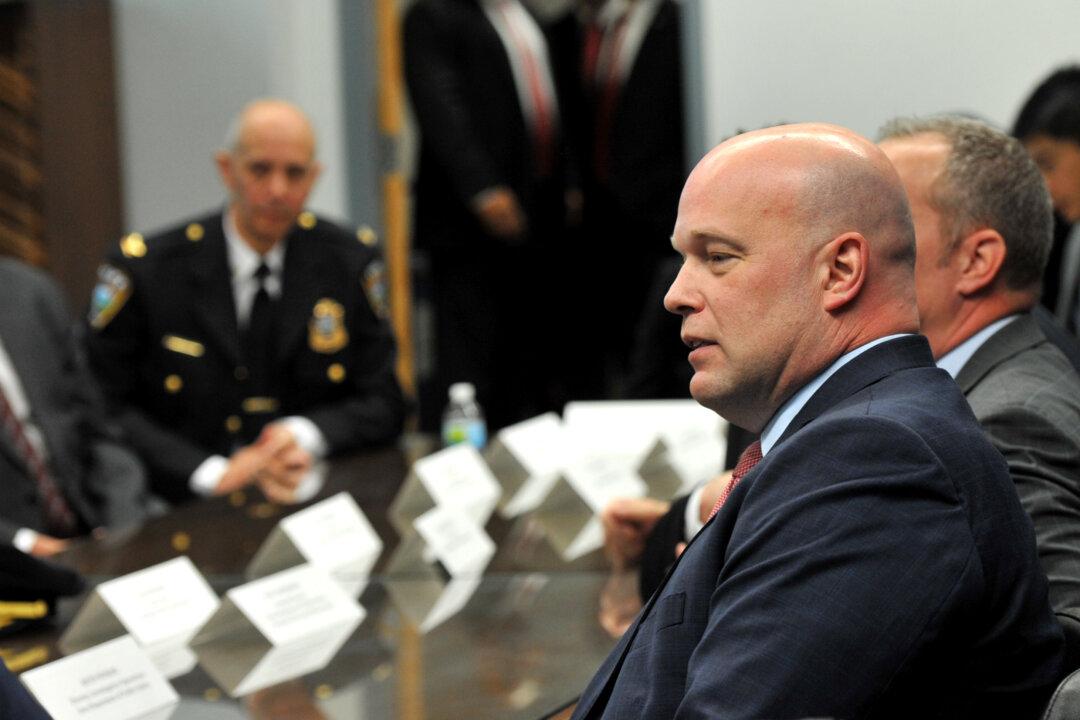A trio of Democratic senators filed a lawsuit on Nov. 19 challenging the legality of President Donald Trump’s designation of Matthew Whitaker as the acting U.S. attorney general.
Attorneys for Sens. Richard Blumenthal (D-Conn.), Sheldon Whitehouse (D-R.I.), and Mazie Hirono (D-Hawaii) claim in a lawsuit that Trump violated the Constitution’s appointments clause when he chose Whitaker to temporarily serve as the replacement for Jeff Sessions, who resigned at Trump’s request on Nov. 7.





